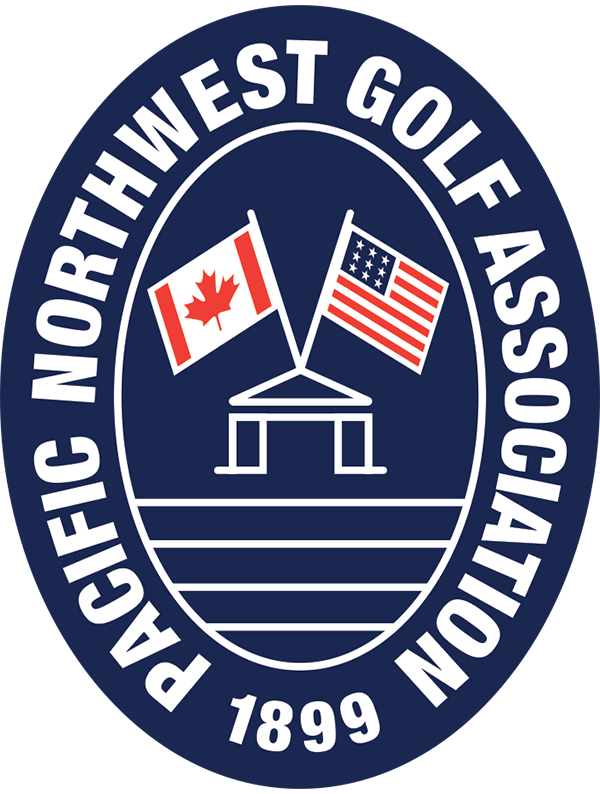Efficiency in Rules Education
The PNGA and its member associations collaborate on a new approach to online Rules Education
by Tom Cade, PNGA Editor-in-Chief

The Pacific Northwest Golf Association (PNGA) and its six member associations have collaborated to create an online Rules Education seminar with a twist. With each of the associations wanting to grow its volunteer base and increase participation in Rules Education, they combined their staff and veteran volunteers in conducting a six-week series and added the one missing ingredient – real-time communication between participants and instructors.
Brent Whittaker, the senior director of championships for the Oregon Golf Association (OGA), began conducting online and in-person Rules seminars in early 2020, which were well-received by volunteers. When COVID hit in spring that year, Whittaker switched to online-only seminars. “They were okay, but after a couple years, participation and interest declined,” he says.
Bringing this program from the OGA to under the PNGA umbrella provided each of the member associations a ready-made program that solved the problem of volunteer recruitment, and in turn solved the problem for the PNGA of finding regional volunteers to serve as Rules officials at its championships, all while helping share services and spread the workload amongst the staff of the associations.
In the fall of 2024, Whittaker began having conversations with Nate Schroeder, the senior director of championships at the PNGA, the regional association of which the OGA, WA Golf, Idaho Golf Association, Montana State Golf Association, Alaska Golf Association, and British Columbia Golf are all member associations.
At the time, no other PNGA member association was doing consistent online Rules education. Each association was looking for an effective way to recruit new Rules volunteers, as well as provide Rules education to their association’s membership. The PNGA was also looking for ways to get each of their member association’s Rules Officials engaged with the PNGA and officiating at PNGA Championships when held in their territory.
“Yes, we had been conducting online seminars, but they were all one-way experiences for the participant, conducted via power-point,” Whittaker says. “In other words, they couldn’t respond, couldn’t ask questions, weren’t given any personal immediate feedback. Engagement, and subsequent participation, were declining.”
Whittaker and Schroeder wanted to re-energize the Rules seminars, with the goal of opening up participation to the six member associations of the PNGA in one overall series, to be conducted virtually.
The resulting course is the full Rules of Golf taught over a period of six weeks via twice-weekly webinars held on Tuesday and Thursday evenings, which are then recorded and made available the following day.
A continuing education model was the inspiration in creating the course, as the aim was to break the Rules up into shorter segments, rather than the full-day or multi-day Rules workshops that associations traditionally run. This removed a major barrier for potential new volunteers, allowing them to give learning the Rules a try without the commitment of going to a full-day workshop.
Along with the twice-weekly education sessions, all participants are grouped into a cohort and matched with an experienced volunteer Rules Instructor for a once-weekly interactive “Office Hours” session where they can ask questions and review practice questions for the week.
The course is designed for association members who are looking to learn the Rules of Golf in depth, current or aspiring volunteer Rules Officials wanting to improve their Rules knowledge, or anyone who is preparing to take the USGA 80 Questions Rules Exam.
Whittaker says the region has a lot of very good Rules Officials, so with the assistance and input from the championship directors of the member associations, he and Schroeder selected 10 of them and assigned each to be available during certain scheduled times each week (i.e. their Office Hours). The seminar’s participants were given questions to work on beforehand during the sessions, which acted as an incentive for engagement during the Office Hours.
The sessions themselves are held twice a week and are not interactive, so in order for participants to ask questions they need to attend their virtual Office Hours session and ask their instructor. Over the duration of the six weeks they build a rapport with them and have an opportunity to learn about their instructor’s own journey with the Rules.
“Our instructors serve as a great model for what a new official can aspire to become, and will become a friendly face after a volunteer graduates from the program and steps out to an AGA event for the first time,” Schroeder says. “The instructors have also found it to be a rewarding experience and have enjoyed having the opportunity to educate and mentor new volunteers.”
According to Schroeder, the biggest benefit is a wider reach in the program, greater impact for participants and shared workload for the staff.
“With more associations involved, we’ve had the ability to attract more participants to the program,” he says. “And with more participants in the program you’ll have larger cohorts for the Office Hours sessions. Not every participant will be able to attend each week, so with a larger overall class size you’ll have larger cohorts, leading to increased participation with better overall sessions. Additionally, with more staff involved it spreads out the teaching workload and improves the program for attendees as they like hearing from different instructors throughout the course.”
Craig Winter, the USGA’s senior director, rules of golf and amateur status, was formerly Whittaker’s colleague at the OGA as their director of rules. “Craig said something that has always stayed with me,” Whittaker says. “’To learn the Rules is to go on a journey with each other.’ And that really makes sense. The Rules are inherently an interactive pursuit. Because of these Office Hours, which give people the opportunity to effectively communicate, we’ve seen attendance go up, and more importantly we’ve seen test scores go up. People just enjoy it more.”
Interested in applying a similar approach to your region? Reach out to Nate Schroeder nschroeder@wagolf.org with questions.






